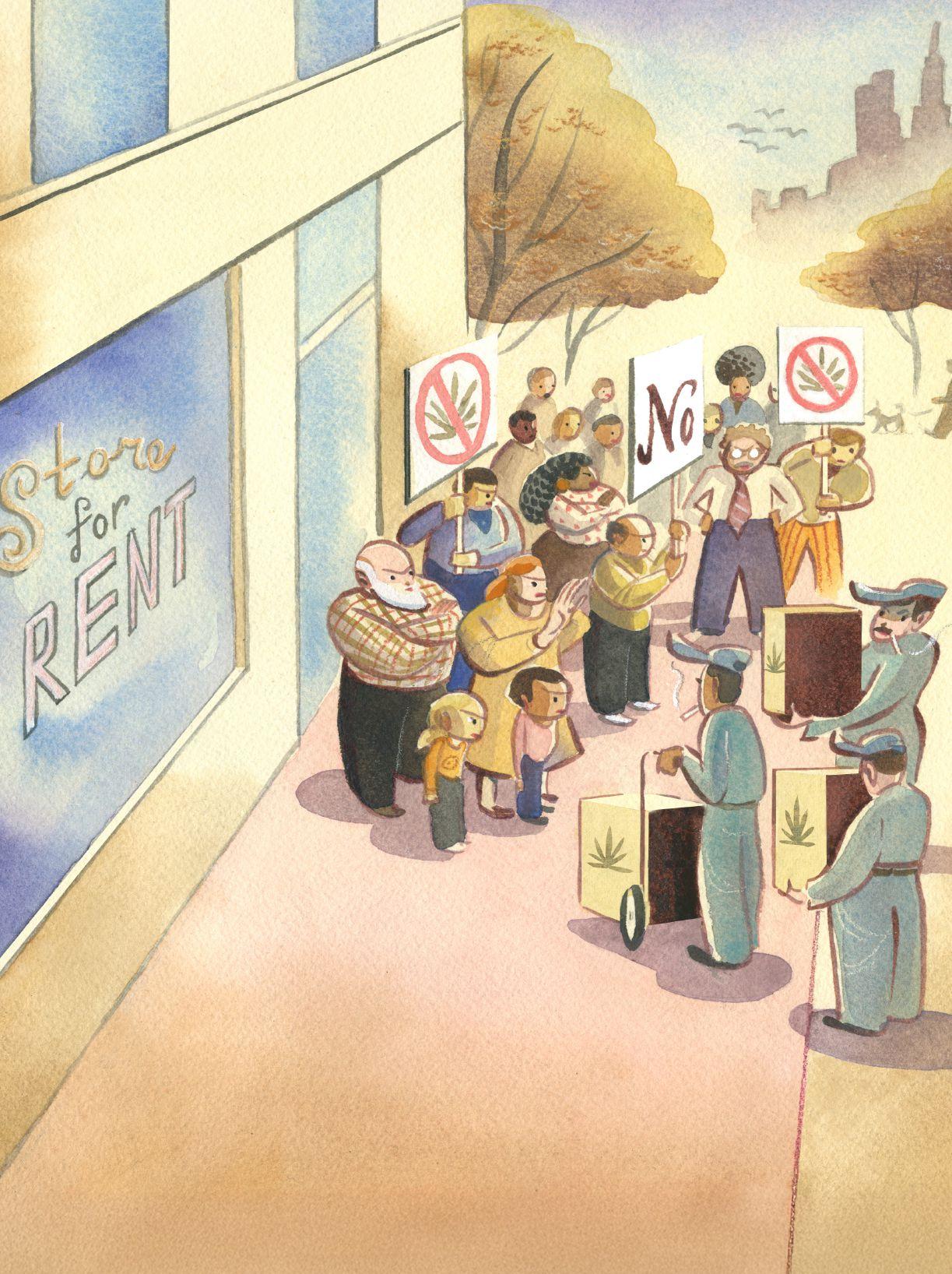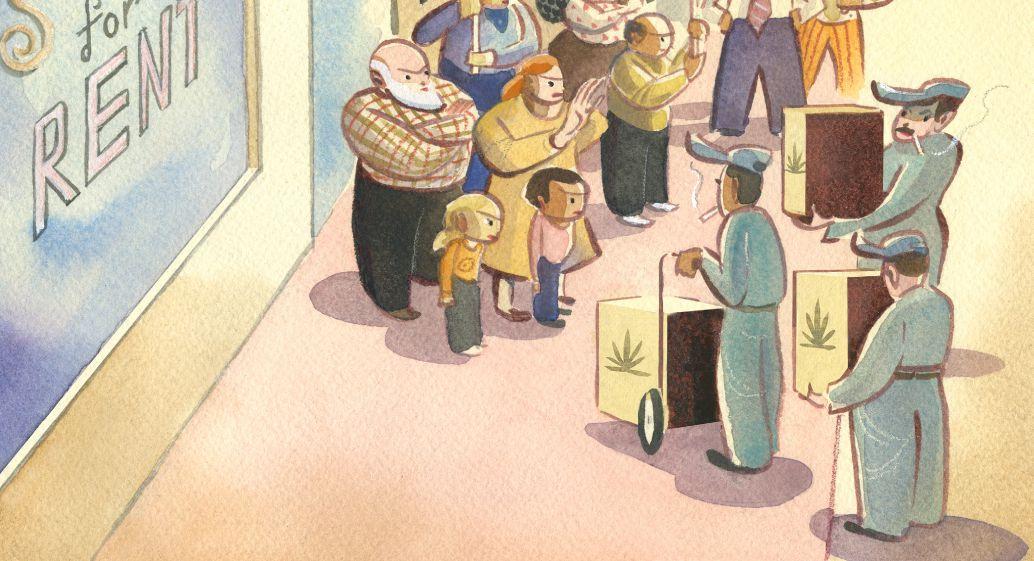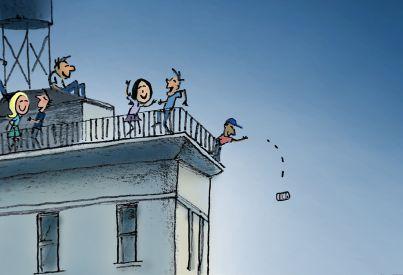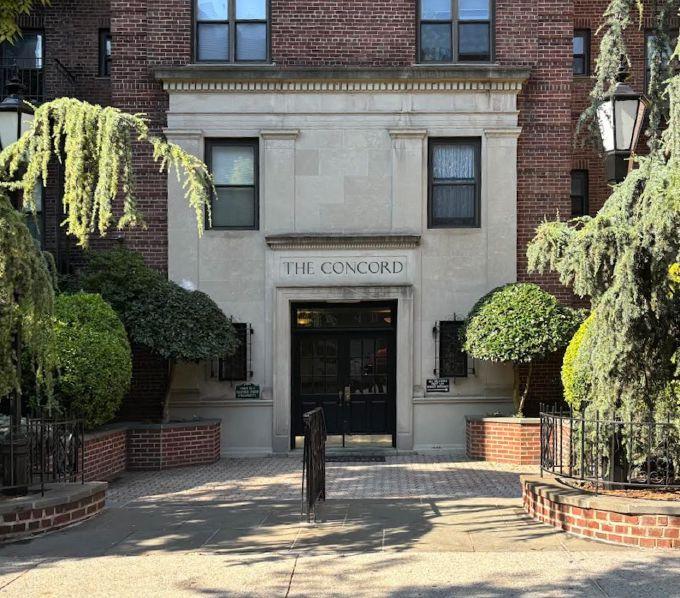OFFSETTING BIG-TICKET REPAIRS
u
WHEN THE
BOARD members at The Concord, a 120-unit co-op in Long Island City, set out to replace its aging boiler system in 2020, they weren’t thinking about tax breaks. “The boiler was requiring repairs upwards of $40,000 a year,” says board president John Vetere, adding that they were mostly concerned about building maintenance costs. The same was true for the nearly $570,000 of facade repairs completed during the
pandemic. J-51, the city’s tax abatement program for residential building improvements, had expired. The co-op assumed it was on its own to pay for the $1.1 million upgrades.
Perfect timing. However, when the city reinstituted J-51 late last year, the board found itself in a rare and enviable position: The boiler and facade work fell within the eligibility window for the revived abatement. “Some buildings assume they aren’t
eligible, when in fact they are,” says Benjamin Williams, head of the property tax certiorari department at Rosenberg & Estis, who helped the board with its application. The new J-51 R program allows co-ops and condos with an average assessed apartment valuation under $45,001 to offset 70% of the total qualifying capital improvement cost, spread out over a minimum of 12 years, with a maximum of 8.3% of the cost applied
annually. “It is not a dollar-for-dollar abatement,” Vetere says, but it will provide some financial cushioning for other much-needed capital projects at the building.
Built in the 1930s, the co-op at 25-40 31st Ave. had two aging boilers running on No. 4 fuel oil — one of the dirtiest fossil fuels that’s being phased out by the city. The board decided to replace the outdated system with a dual-fuel setup running on cleaner No. 2 fuel oil and natural gas. The aboveground oil tank — caked with decades-old sludge — was replaced, along with the chimney liner, to bring it up to code for gas use. A separate gasfired hot-water system was installed, allowing the boiler to be switched off in the summer. All told, the project cost $529,000.
At the time, the board financed the boiler and facade work with a $1.5 million wraparound mortgage. Maintenance charges increased, but there was no special assessment. Applying for the abatement required inspections and application fees. “Inspections were the biggest holdup — waiting to get the inspectors out to certify and confirm the work was completed,” says Naro Dzidzovic, senior account executive at Orsid, which manages the
to be given any day now. “We are close to the finish line,” he says.
Future fixes. The J-51 R abatement will lower the co-op’s tax burden, and the board plans to use those funds for other projects.
The building is currently below its carbon-emissions limits for Local Law 97, but it’ll be a different pic-
The co-op plans to use funds from the J-51 R tax abatement for other big-ticket projects, including possible window replacements and roof repairs, to avoid Local Law 97 penalties in 2030.
building. The board’s application, filed in April, is currently under review by New York City Housing Preservation and Development. Dzidzovic expects the abatement
ture in 2030. To avoid penalties, the board will need to consider window replacements and possibly a roof project. “Those are highticket items,” Vetere says. What’s
more, the building’s low-interest mortgages mature in 2028. “The whammies are all going to hit at the same time,” he says.
Another challenge is the outdated plumbing system. While structurally sound, the original pipes are increasingly unpredictable. “Our building has good bones, but clogged arteries,” Vetere says of the risers and drain lines. Rather than an expensive and disruptive building-wide project, the board’s strategy is to coordinate with shareholders doing kitchen and bathroom renovations and inspect risers for corrosion or loose joints. The co-op then funds replacements when necessary. Even so, this can be difficult to budget for, since there may be three or four renovations in a year or none at all. “The J-51 abatement helps with this because there will be a budget line that has wiggle room,” Vetere says. n
Money-back deal: The Concord is expected to offset the cost of $1.1 million in heating and facade upgrades with the reinstated J-51 R tax abatement program.
NARO
DZIDZOVIC/ORSID
CNYC HOUSING CONFERENCE
Sunday, Oct. 26, 2025
9 a.m. to 4:45 p.m. Online only: advance registration required www.cnyc.coop Scan me
To register for the conference, scan now.
ANNUAL HOUSING CONFERENCE
The Council of New York Cooperatives & Condominiums will present its 45th Annual Housing Conference on Zoom, where registrants can select among 50 sessions, including 42 classes on virtually every aspect of operating cooperatives and
condominiums in New York today, as well as eight Policy Panels on specific issues where CNYC seeks to improve existing situations. Every board member and prospective board member will find sessions of interest at this conference — whether their focus is on rising costs, increased flooding incidents or energy issues. There’s
something for everyone — your treasurer, your green team, the residents eager to redecorate the lobby, board members stressed by the rising costs of insurance and of compliance with the myriad of New York laws, and even those who want to learn more about court cases guiding current board policies. Shareholders and unit-owners
new to board service can learn about budgeting, subletting, house rules and more. And attorneys and accountants can earn continuing education credits in several of the conference classes.
50 SESSIONS IN FOUR TIME FRAMES
Registrants for CNYC’s 45th Annual Housing Conference may attend up to four classes or Policy Panels in the course of the day. The 50 sessions are presented in four time bands, with the Policy Panels interspersed among the classes. Each participant can select one of eleven classes and two Policy Panels (numbered 101-113) to attend at 9 a.m.; one of 10 classes and two Policy Panels (#201-212) at 10:45 a.m.; another one of 11 classes and two Policy Panels (#301-313) at 12:45 p.m.; and one final event among 10 classes and two Policy Panels (#401-412) at 2:30 p.m.
Advance registration is required, with class selection a necessary part of registration. Changes are permitted until the close of registration at midnight on Thursday, October 23. Time constraints? Yes, you can attend fewer sessions — and rates adjust accordingly. Many conference sessions deal with the day-to-day responsibilities of running New York cooperatives and condominiums, offering insights into successful innovations and strategies. Legal, financial and physical plant basics are available for new board members and those seeking a refresher. Other sessions provide updates on property taxes and new laws, suggest innovative ways to communicate with residents, offer guidance on managing
energy consumption and carbon output, and give guidance on managing capital projects or digitizing building records.
Most classes are run as formal presentations, with opportunities for registrants to submit questions in writing or to ask them at designated discussion stopping points in the course of the class. Registrants for Policy Panels are encouraged to submit their questions beforehand for the moderator to include in the agenda.
CLASS SELECTION IS PART OF REGISTRATION
No registration is complete until the numbers of the specific sessions you will attend have been entered on the registration form. The conference brochure is posted on the CNYC website at www.CNYC. coop and can be downloaded as a PDF. To request a printed copy of the conference brochure, call CNYC at (212) 496-7400. Registration must be completed by midnight on Thursday, October 23. Links and materials for all conference events will be sent to registrants on Friday, October 24.
THIS IS A ZOOM CONFERENCE
The sessions are presented exclusively over Zoom. The absence of physical constraints at Zoom meetings enables popular classes to accept a large number of registrants and allows registrants to attend without concerns about a commute.
CNYC MEMBER RATES
Every cooperative and condominium that is a 2025 member of CNYC is entitled to one free registrant to attend sessions all day at
this conference. Additional participants from CNYC member cooperatives and condominiums enjoy modest member rates, with even more advantageous rates when your cooperative or condominium registers a team together.
CNYC extends member rates to members of sister organizations, including the National Association of Housing Cooperatives (NAHC), the Coordinating Council of Cooperatives (CCC), the Association of Riverdale Cooperatives and Condominiums (ARC), the Urban Homesteading Assistance Board (UHAB), and the Westchester Co-op and Condo Council. Nonaffiliates are welcome, too, though they are subject to higher fees.
REGISTER ONLINE OR BY MAIL
Registration can be completed by mail, using the form on page 10 of the conference brochure or on the CNYC website at www.CNYC. coop. Online registration will generate an immediate receipt, which shows the specific sessions selected. Credit card payment is accepted online only. Registration is not complete, nor can fees be calculated, until the registrant has selected all the sessions they will attend.
Two days before the conference, each registrant will receive by email a link for each session they have selected as well as the Conference Program, which includes brief biographies of all the speakers and a Resource Directory with products and services useful to New York cooperatives and condominiums. After the conference, the current Resource Directory is posted on the CNYC website for a year. n
WHO MIGHT WANT TO ATTEND?
Board members, shareholders and unit-owners concerned about soaring insurance costs; property managers; and insurance experts.
409. MITIGATING CAPITAL COSTS: J-51 R, Incentives, Grants, Abatements
BUILDING TRACK FINANCIAL TRACK
In this time of increased costs of capital projects, cooperatives and condominiums will want to take advantage of all possible avenues of cost mitigation. Attorney and J-51 expert Benjamin Williams and Derick Kowalczyk, multifamily program manager for Con Edison’s incentive programs, will describe potential funding, incentives, grants, abatements and exemptions for capital work. In addition to the reintroduction of the J-51 program, which is extremely helpful in mitigating financing costs in eligible co-ops and condos, some assistance is also available through programs administered by the Housing Preservation and Development (HPD), Landmarks Preservation Commission (LPC), and Consolidated Edison and National Grid.
LEVEL: Basic
WHO MIGHT WANT TO ATTEND?
Board members, building committee members, finance committee members and management personnel interested in mitigating the cost of capital projects.
POLICY PANEL
410. WORKING WITH YOUR ELECTED OFFICIALS
COMMUNITY TRACK
ADVOCACY TRACK
Broad community engagement leads to better legislation and stronger communities. When co-op/condo homeowners do not participate in the conversation, elected officials lose out on critical input and insights. This panel of elected officials will discuss best methods for communicating with their offices, areas in which they believe co-op/condo participation is needed and information on how we can work together to ensure legislation is well targeted, readily understood and easily implemented.
WHO MIGHT WANT TO ATTEND? Board members, shareholders and unit-owners interested in advocating effectively for issues of importance to their building and their community.
411. GREEN ROOFS, RAIN GARDENS AND TREE WELL PLANTING
BUILDING TRACK COMMUNITY TRACK
Transform your roof, courtyard, tree wells or gardens into a green oasis that helps prevent flooding by absorbing excess rainfall and supports native plants and pollinators while beautifying your co-op or condo. Join Nyleen Euton of the Department of Environmental Protection to learn how the city supports green roofs and rain gardens, and learn more about the nuances of various landscapes and plant selection from Annie Novak, author of “The Rooftop Growing Guide: How to Transform Your Roof into
a Vegetable Garden or Farm” in this class moderated by CNYC board member and plant enthusiast Corinne Arnold.
LEVEL: Basic
WHO MIGHT WANT TO ATTEND?
Green committee members, garden committee members, building supers, board members, and shareholders and unit-owners interested in gardening and flood mitigation.
412. LOCAL LAW 97 — ONGOING DISCUSSION WITH ENERGYFOCUSED BOARD MEMBERS
ENERGY TRACK
COMPLIANCE TRACK
BUILDING TRACK
GOVERNANCE TRACK
COMMUNITY TRACK
Local Law 97 is a major concern for most co-op boards. Beyond the 2025 filings, the focus turns to the 2030 standards, which will be tougher. Each co-op is different, but there are strategies and technologies that can work for all. This group of self-proclaimed energy-geek board members from several different co-ops will discuss developing technologies, resource-efficient planning and incremental steps to reduce emissions and save our buildings money in the process.
LEVEL: Advanced
WHO MIGHT WANT TO ATTEND? Board members, shareholders, unit-owners, green committee members, building operations committee members, supers and management personnel interested in promoting energy conservation in their community. n








